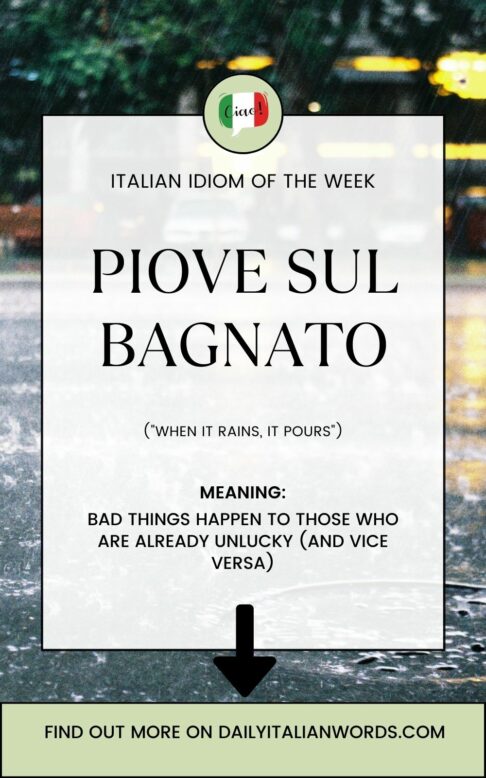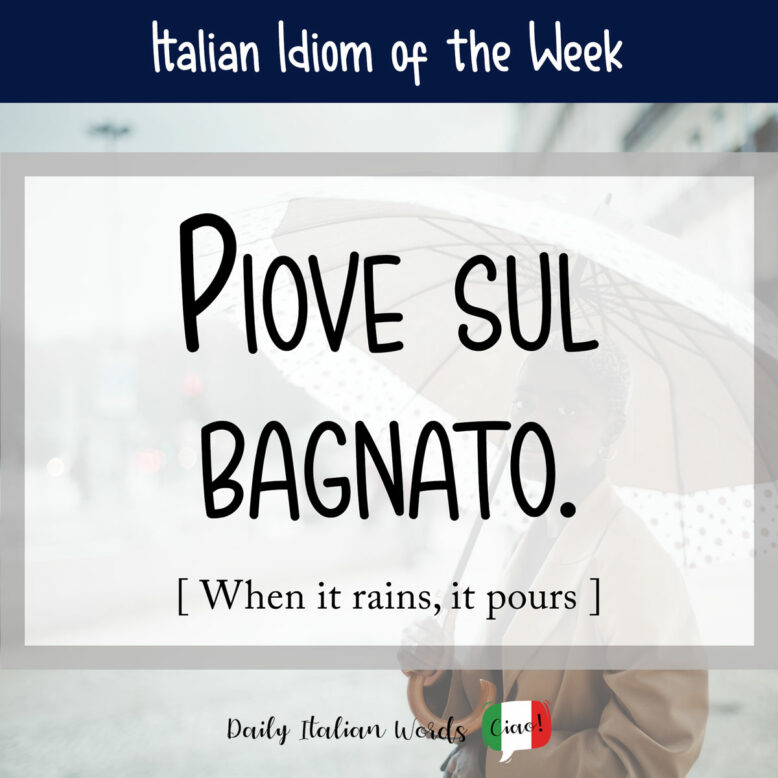As you were crossing the street, your keys fell down the storm drain. Then, to add to your frustration, you missed the last train home. In English, we often say “When it rains, it pours” (or “It never rains but it pours“) to convey the idea that when one bad thing happens, other bad things tend to happen at the same time or in succession. In Italian, a similar expression is Piove sul bagnato (literally meaning “it rains on the wet”).

Piove sul bagnato is used to describe a situation where unfortunate events persist for those who are already unlucky, or when those who are already favoured by luck continue to experience positive outcomes. If a millionaire were to win the lottery, that would be piovere sul bagnato; similarly, if a worker’s car broke down and he came home to find that his TV wasn’t working, that would also be piovere sul bagnato.

In contrast, the English equivalent, “When it rains, it pours,” is typically used only to convey a negative sense of multiple bad things happening at once.
Note: Very often, Italians will include the adverb sempre (always) when using the idiom.
Ho perso il lavoro e ho appena ricevuto una multa. Piove sempre sul bagnato!
I lost my job and I just received a fine. When it rains, it pours!
This expression originates from renowned Italian poet Giovanni Pascoli, who wrote in his Prose: “Piove sul bagnato: lagrime su sangue, sangue su lagrime,” which translates to “It rains on the wet: tears on blood, blood on tears.” Note that lagrime with a “g” is an archaic version of the word. Lacrime with a “c” is much more common.

Heather Broster is a graduate with honours in linguistics from the University of Western Ontario. She is an aspiring polyglot, proficient in English and Italian, as well as Japanese, Welsh, and French to varying degrees of fluency. Originally from Toronto, Heather has resided in various countries, notably Italy for a period of six years. Her primary focus lies in the fields of language acquisition, education, and bilingual instruction.


